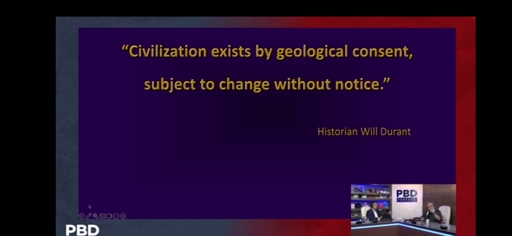Geologists doubt Earth has the amount of copper needed to develop the entire world
-
Ea-Nasir, you sold me an insufficient earth!!!
In our modern times, Ea-Nasir still has some bars of aluminum to sell you. Quite several, in fact.

-
In a lot of cases you can also use Aluminum instead of copper. You need thicker wires and it's less flexible, but it's doable and cheaper. Some old electric motors from the eastern block used aluminium coils for that matter, because copper was much more expensive there.
Aluminium is actually a better conductor than copper when you judge it by mass, not volume. I think also by tensile strength.
In any case there's a reason that large overland wires aren't copper, but steel-cladded aluminium. Copper will always have its applications but so does gold and yet we're not running out of gold to plate connections with.
In cases like windings requiring more volume is actually an issue, in the case of PCBs... no, despite Apple's insistence, it's actually fine to have a phone that's 0.2mm thicker.
-
Now, one place it’s more of a problem is in things like transformer windings. There are kilometers of wiring in any of them, so the higher resistance of aluminum is a problem.
Is it? As far as I know you can use a larger diameter wire to get the same resistance as copper, if your device has enough space for bigger coils.
You're trying to transmit power via magnetism so distance is an issue.
-
This is an article about scarcity, insufficient supply to meet demand.
Artificial demand creation isn't necessary, or even productive, when the existing demand already outstrips supply.
And if it is the case that demand is much higher than supply, that's a baked in financial incentive that rewards people for efficient recycling.
Capitalism is bad at pricing in externalities. It's pretty good at using price signals to allocate finite resources to more productive uses.
Capitalism is bad at pricing in externalities. It's pretty good at using price signals to allocate finite resources to more productive uses.
Markets do not equal capitalism. You can have the efficiencies of free markets (worker owned co-ops which are market socialist) without the all consuming greed of capitalism.
-
This post did not contain any content.
Copper doesn't get used up. The blue rocks in the picture are basically copper rust. We just need to use it in smart ways...no copper pots or door handles. Or at Least identify and recycle it more efficiently by returning used electronics to the stores we purchased them from. Those places should have a plan on how to dismantle the used electronics and how to reuse the materials.
-
If you have the tech to do that, just capture the asteroid in orbit and mine it in space.
I'm envisioning extracting more copper and other metals that would be utilized in space, so - yeah, if you can develop smelting and refinement capabilities on-orbit there's some attractiveness there, but down on the mud-ball we're going to use over a million times as much material as we are currently utilizing on orbit and beyond, so getting that material down is going to be a whole lot cheaper and more efficient as a "natural skyfall" than any kind of controlled re-entry.
-
Copper doesn't get used up. The blue rocks in the picture are basically copper rust. We just need to use it in smart ways...no copper pots or door handles. Or at Least identify and recycle it more efficiently by returning used electronics to the stores we purchased them from. Those places should have a plan on how to dismantle the used electronics and how to reuse the materials.
We just need to use it in smart ways
We're more likely to get copper from asteroids first or die trying
-
Capitalism is bad at pricing in externalities. It's pretty good at using price signals to allocate finite resources to more productive uses.
Markets do not equal capitalism. You can have the efficiencies of free markets (worker owned co-ops which are market socialist) without the all consuming greed of capitalism.
I don't disagree, but I don't see the relevance of these particular flaws of unrestrained capitalism to this specific stated problem: that there might not be enough copper to be able to continue to use it as we always have.
There are lots of flaws to capitalism. Running out of useful copper, while copper is being used in wasteful ways, doesn't really implicate the main weaknesses of capitalism systems.
-
Ever since the crisis of over production, MAJOR, unceasing psycho-social campaign have been continuously been running not just to foster demand but to ensure it exceeds the planned supply and ensure the price margin always remains on the right side of the curve.
This is the central reason why nearly everyone works ceaselessly to buy things they don't need and dont have the time nor energy to use.
What does this have to do with how the world distributes useful copper? Nobody is buying up copper because of being tricked by advertising, so I'm not sure what the relevance of your comments are, to the topic at hand.
I don't think you're wrong, I just don't think this thread really raises the issues you want to talk about.
-
We just need to use it in smart ways
We're more likely to get copper from asteroids first or die trying
Didn't China just punt off a ticket to some asteroids? Viability tests maybe?
-
What does this have to do with how the world distributes useful copper? Nobody is buying up copper because of being tricked by advertising, so I'm not sure what the relevance of your comments are, to the topic at hand.
I don't think you're wrong, I just don't think this thread really raises the issues you want to talk about.
We are all literally being tricked into bringing home more copper.
I bought a whole ass Samsung S25 In February, only to discover in March that a $6 part and $20 bucks of labor made my S22 perfectly serviceable (needed new USB charging port)
But like a dumbass I bought a phone after 3 years of waiting, and was giddy about it and I'm literally typing on the older phone now.
I have been trying to trick myself into letting devices grow into a more full obsolescence before replacing them, and have had very poor luck in doing so.
Plenty of this is my own impulse control, but plenty of this is by design and marketing, and if enough people are satisfied with their three years old cell phones bad things happen to your 401k and to my friends employed in South Korea.
I realize that this is an infinitesimally smaller amount of copper, Even all-in with accessories, and the institutional and industrial requirements for copper.
But if we don't start to figure out some sort of degrowth, we're going to hit that wall as others have mentioned, and it all seems to start with the marketing demand and design.
-
There's a lot of copper pairs left underground. Many hundreds of thousands of kilometres of it. Use it as a pull-through for fibre-optic bundles, and everyone can have gigabit internet.
Seriously though, there'll come a time when that underground obsolete copper will become economic to retrieve.
One of my family members had that job for a good while. What's interesting is the phone companies did not keep great records of what's copper and where it is, so a lot of it is likely to remain in place for a long time. Something else he has seen is thieves cutting fiber, thinking it is copper, and causing outages, although that is less frequent than it was years ago.
-
What does this have to do with how the world distributes useful copper? Nobody is buying up copper because of being tricked by advertising, so I'm not sure what the relevance of your comments are, to the topic at hand.
I don't think you're wrong, I just don't think this thread really raises the issues you want to talk about.
I think this kind of artificial demand creation is the main driver for all resource consumption
-
We are all literally being tricked into bringing home more copper.
I bought a whole ass Samsung S25 In February, only to discover in March that a $6 part and $20 bucks of labor made my S22 perfectly serviceable (needed new USB charging port)
But like a dumbass I bought a phone after 3 years of waiting, and was giddy about it and I'm literally typing on the older phone now.
I have been trying to trick myself into letting devices grow into a more full obsolescence before replacing them, and have had very poor luck in doing so.
Plenty of this is my own impulse control, but plenty of this is by design and marketing, and if enough people are satisfied with their three years old cell phones bad things happen to your 401k and to my friends employed in South Korea.
I realize that this is an infinitesimally smaller amount of copper, Even all-in with accessories, and the institutional and industrial requirements for copper.
But if we don't start to figure out some sort of degrowth, we're going to hit that wall as others have mentioned, and it all seems to start with the marketing demand and design.
Copper is a material that is used in many more orders of magnitude for infrastructure and basic development. It's technically "consumption" to eat food everyday and have running water and electricity in your home, but the type of materialist luxury consumption you're talking about doesn't factor into global copper demand. There are 7.2 billion smartphones in use, and about 14g of copper in each one. That's about 100,000 metric tons of copper, when the article talks about 110 million as a baseline (11,000 times as much), and above 200 million (20,000 times as much). So no, consumer electronics aren't going to move the needle on this scale of a problem.
If you're going to tell the developing countries that they need to stop developing, that's morally suspect. And frankly, environmentally suspect, as the article itself is about moving off of fossil fuels and electrifying a lot of our energy needs in both the developed and developing nations, whether we're talking relatively clean energy source like natural gas or dirtier sources like coal, or even dirtier sources like wood or animal dung.
-
Copper doesn't get used up. The blue rocks in the picture are basically copper rust. We just need to use it in smart ways...no copper pots or door handles. Or at Least identify and recycle it more efficiently by returning used electronics to the stores we purchased them from. Those places should have a plan on how to dismantle the used electronics and how to reuse the materials.
Copper pots and door handles are very smart products as copper has killing bacterias properties, it is self cleaning, in some way.
-
Copper pots and door handles are very smart products as copper has killing bacterias properties, it is self cleaning, in some way.
Its possible to just coat the surface if that's the effect needed. I was so happy a year ago that I had found copper Ethernet wire. However upon inspection recently the wire is basically aluminum coated in copper. Usually, platers will first clean the surface and then electro less coat nickel on aluminum. Then you can coat other things like copper. Aluminum forms an oxide almost instantly in normal atmosphere so its difficult to coat with anything. But electroless nickel works very well after an HCl bath or a nitric bath.
-
Copper is a material that is used in many more orders of magnitude for infrastructure and basic development. It's technically "consumption" to eat food everyday and have running water and electricity in your home, but the type of materialist luxury consumption you're talking about doesn't factor into global copper demand. There are 7.2 billion smartphones in use, and about 14g of copper in each one. That's about 100,000 metric tons of copper, when the article talks about 110 million as a baseline (11,000 times as much), and above 200 million (20,000 times as much). So no, consumer electronics aren't going to move the needle on this scale of a problem.
If you're going to tell the developing countries that they need to stop developing, that's morally suspect. And frankly, environmentally suspect, as the article itself is about moving off of fossil fuels and electrifying a lot of our energy needs in both the developed and developing nations, whether we're talking relatively clean energy source like natural gas or dirtier sources like coal, or even dirtier sources like wood or animal dung.
First of all, thank you.
I don't want to be telling developing nations to halt their progress. You underscore where my mindset could be prescriptive and harmful.Second, my point is that we seem to only get infrastructure or 'progress' when it can be weaponized under capitalism to make someone money, the same way we can't have meaningful recycling systems because it will never be profitable over virgin plastics and other single-use materials.
My attitude has been morphing into "nobody gets second until everybody gets first plates" but for housing, accessories, tools, etc -- that plays directly into the kinds of capital equipment, network buildouts, and supply chains that deliver iPhones to us for $1,000 when the actual material, energy and human cost could be easily 30x that.
I'm saying the paths and lanes that deliver consumer goods and experiences are obscuring the waste therein, and that they drive copper crisis just like every other scarcity crisis.
-
This post did not contain any content.
It’s ok just 3D print it

-
Well, I suspect we've got enough copper for the next 50 years, so... good timing.
And, you don't start with a Manhattan sized rock, you practice with little ones just big enough to survive re-entry and work your way up. The key is learning to operate long term with "rock moving tech" in solar orbit. We're not there, which is why we should have started 50 years ago...
We have enough copper for a lot more than that, depending on how far and deep we want to go
-
We have enough copper for a lot more than that, depending on how far and deep we want to go
Well, that's a big component: how efficient / environmentally destructive is the mining?
Also, as electricity consumption in areas like China, India, Africa increases, they're going to start needing big multiples of the amount of copper used in the US/Europe/ANZ to-date.








